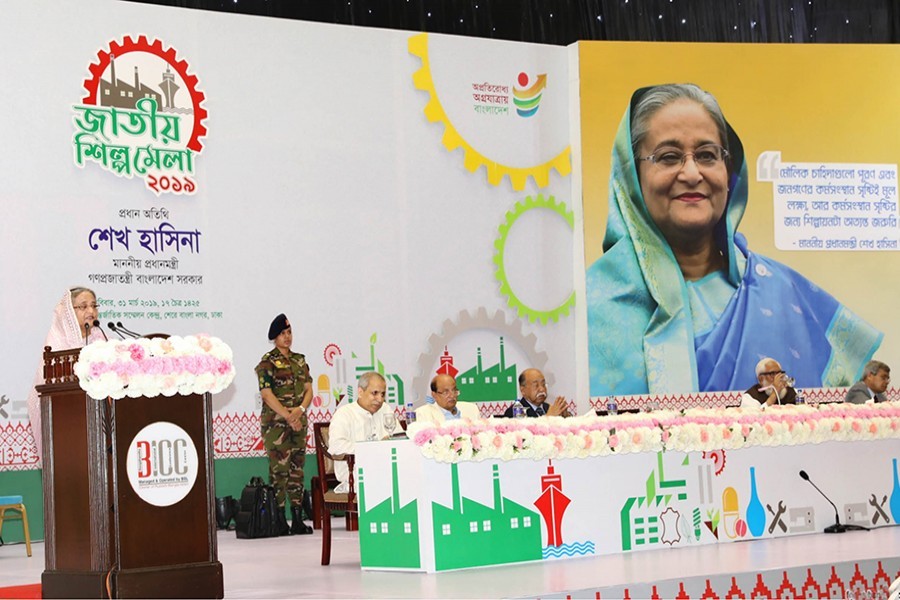The holding of a week-long national industrial fair, first of its kind, augurs well for the country. It has been dubbed the premiere exposition perhaps because of the total exclusion of any imported good or commodity's display or sale there. Here is an attempt to bring together the country's entrepreneurs, allowing them an opportunity to showcase their products. Since the setting up of hi-tech industrial parks in different parts of the country, never has there been an opportunity for the manufacturing sector to display an array of locally produced products at the same venue before this. In the past, indigenous handicrafts and some small and medium-sized enterprises (SMEs) marked the country's industrialisation. But the country has moved a long way off by this time with even a heavy industry like shipbuilding taking off modestly. Together with hi-tech industrial parks and the information technology, such an industry has also started spreading its roots here. The exposition is likely to offer an opportunity for an unbiased assessment of the industrial progress the country has so far made.
This is a prerequisite for deciding the nation's plan of action and getting the priority right with the fourth industrial revolution almost knocking at the door. The 300 or so entrepreneurs taking part in the fair is hopefully going to represent the country's industrial ventures covering all areas of the manufacturing sector. What is particularly pleasing is to know that more female participants than male will be present at the venue. Against 116 female entrepreneurs, the number of male participants will be 107. Is this a case for more than gender parity or have the overwhelming majority of handicrafts and design and fashion wears tilted the balance in favour of women entrepreneurs? If it is not but a genuine reflection of women's involvement with industrial ventures, the country surely has an occasion for celebration.
That Bangladesh's economy has proved an enigma to economists around the world is however not a secret. Women's contribution to the country's productive sector has been on the rise since the beginning of the new millennium. China was a precursor in this area. Specialised industrial villages set up depending on local people's traditional skills have spurred that country's growth. Bangladesh has not done the same in a planned way but entrepreneurship has developed among women quite remarkably. Even illiterate village women have taken to making compost manure from earthworms and run their families well.
All this has been suitable for the country so long. In a highly populous country, heavy industry cannot be a natural option. Here employment of people is a crucial matter. So it is wise to go for development of SMEs and the IT sector. These are areas that do not heavily pollute the environment. Such industrial ventures will suit the country's need. Now that the artificial intelligence (AI) is poised to take the centre stage of the fourth industrial revolution, the country cannot turn a blind eye to the development in that area. It must get prepared to face challenges coming from this sector too.


